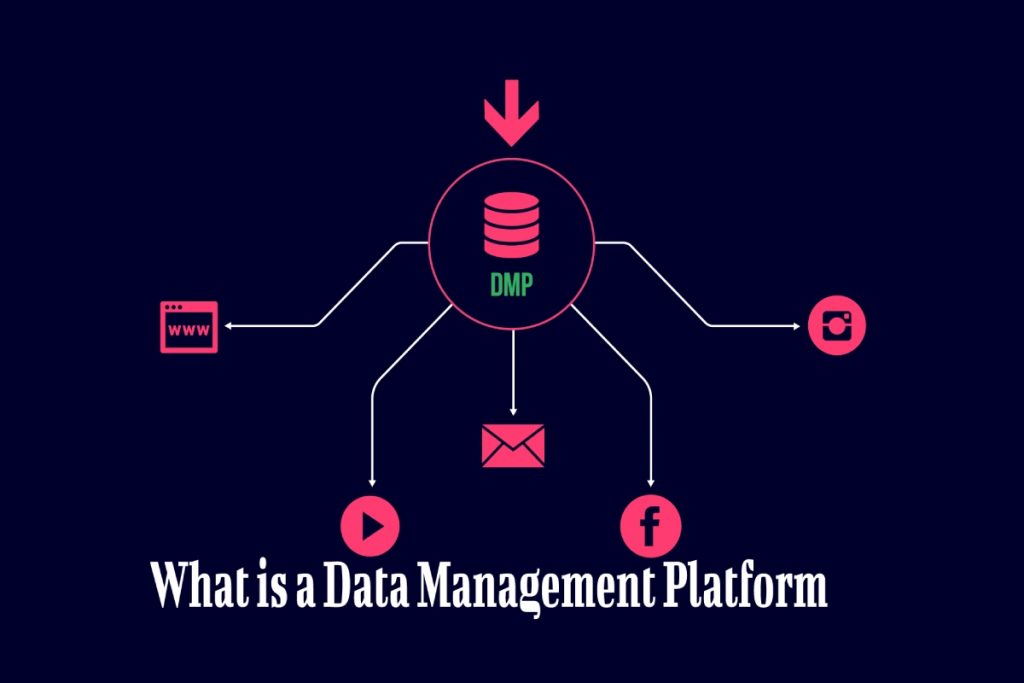Table of Contents
What is a Data Management Platform?
A Data Management Platform (DMP) is a technological tool for user data management, aggregating and centralizing different data types from other channels’ actions. With them, your general information about the right audiences for different advertisers.
In summary, the Data Management Platform collects data from various sources, including some internal and others external. It stores them in an orderly manner, according to a series of criteria established at the time of its configuration. The operation of a DMP is simple, even though its internal processes will drive complex and innovative technology.
The Dmps’ Operation Will Base On 2 Steps:
Data processing. Data collection. This may include data obtained directly by the advertiser itself, by third parties, from cookies, or other sources. All the information collected is ordered to give rise to coherent audience segments.
Transmission of data to ad servers. The audience segments created by the DMP will use to make purchasing decisions in a matter of seconds.
So the DMP will help us create a segmented database that we can use later to target specific users and detect quality audiences; that is, it will help us see the common points between the different audiences and measure the results. To impact those who are not yet customers.
Its essence is integrating and centralizing data types from various platforms, channels, and devices, providing a complete view of users. Then, it selects relevant data and classifies, organizes, segments it, and activates it for its ad partners.
Also Read: How To Start A Business: Step By Step Guide
What Types Of Data Are There And To Whom Do They Belong?
3 types of data can be obtained and used with a DMP:
First party: data collected by the company itself. The company is the owner. Navigation data, mobile applications, CRM. Being the advertiser’s data, they are the most valuable. They refer to their customers or users who have reached their digital spaces. In addition, obtaining this data is cheaper.
Second-party: data result from cooperation or collaborations between companies. This is data from online campaigns and the customer journey. This is the same data as above but not referring to your brand but a specific source. This type of data is interesting when there are synergies. They will achieve this when an advertiser gets in direct contact with support and obtains the data of that particular support.
Third-party – Provided by data providers, there are marketplaces on this. This is data from sources outside the advertisers. It is usually data that will bring. Therefore, must take excellent care n in its implementation. Depending on the companies, the data will be obtained with different processes. This type of data is usually more expensive and, in addition, of lower value than the previous ones.
As users, we can decide to transfer our data to a company or platform that we are using. Still, they send our data to another company to show us that advertising is very different. This is a perspective to keep in mind when choosing your approach to data management.
Advantages Of Dumps And Example Of Use
DMPs can bring multiple benefits to advertisers, such as:
- The ability to process large amounts of data quickly.
- You can better understand your target audience through behavioral insights obtained from multiple sources.
- Improvements in advertising effectiveness. By targeting precisely the right audience, your ads get more conversions.
DMPs are a compelling technology that provides desirable advantages for advertisers and online advertising agencies on paper. A Data Management Platform allows you to take great advantage of the purchase of programmatic advertising and apply a layer of automation to purchasing online advertising space.
This is something that many companies that do inbound marketing may tempt to use to improve their results. However, it faces an uncertain future due to two significant challenges: the GDPR and the ban on the use of cookies.
The GDPR has placed strict limitations on using data in advertising and how it must be collected, limiting the data collection sources that power DMPs.
On the other hand, Google has already announced its intention to ban cookies in its browser, Google Chrome, from 2022. This further limits obtaining information about users and can make DMPs permanently obsolete.
Also Read: 5 Strategies to Build an Effective Work Team In Bussiness

Review What is a Data Management Platform and Why Do You Need . Cancel reply